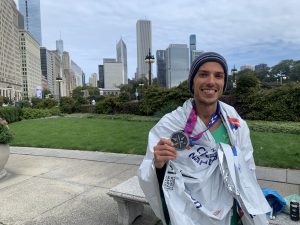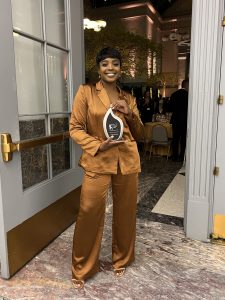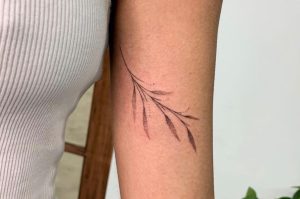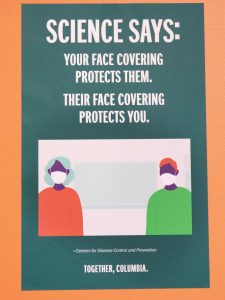By Ed Finkel of LISC Chicago’s New Communities Program
 A 72-square-block section of Humboldt Park will undergo a house-to-house diabetes census with an eye toward early detection, thanks to a grant from the National Institutes of Health that’s being administered with help from NCP partner agencies.
A 72-square-block section of Humboldt Park will undergo a house-to-house diabetes census with an eye toward early detection, thanks to a grant from the National Institutes of Health that’s being administered with help from NCP partner agencies.
Institutional partners Rush University Medical Center and Sinai Urban Health Institute requested $2 million for the intervention, and the final grant amount for the 72 Block by Block Greater Humboldt Park Community Campaign Against Diabetes will be in that range but hasn’t been finalized, said Jaime Delgado, program manager for diabetes intervention with SUHI.
Community partners for the 72 Block By Block intervention — which will range from Chicago to Bloomingdale, and from Western to Kedzie — include the Greater Humboldt Park Community of Wellness, Centro Sin Fronteras and the Puerto Rican Cultural Center.
PRCC Executive Director Jose Lopez is named as co-principal investigator along with Dr. Steven Rothschild of Rush.
The screening area is home to about 13,000 adults, and the agencies involved expect to find 1,400 to 1,700 who didn’t know they had diabetes, Delgado said.
The four “block captains” who are being trained to conduct the census, which will begin in early fall, will measure waist circumference, take blood pressure and conduct other screenings on those who agree to participate, to determine whether they’re at risk.
Those at risk – and those who know they have diabetes but haven’t addressed it – will be strongly encouraged to see their doctor or given assistance in finding a doctor, Delgado said.
But the NIH grant does not include funds to pay for testing or treatment, and the agencies are attempting to secure additional grants and/or in-kind contributions from local health agencies, he said.
“We’re trying to get some cooperation from our partners. We want to appeal to medical providers, for folks who don’t have the resources, to take that issue away,” Delgado said.
The agencies also want to approach area restaurants “in a non-threatening way” to boost their focus on nutrition, and the Division Street Business Development Association has agreed to partner with the effort on that front, he said.
The block captains will compile statistics from their interviews and encourage those screened to focus on nutrition and fitness, returning to measure and monitor those with diabetes three times per year for a minimum of two years.
While the time frame probably is not long enough to establish a measurable reduction in diabetes, Delgado said the grantees expect they will be able track to improvements in people’s self-management.
Those who participate will be offered health education as well as other types of ongoing support to handle issues ranging from poverty to violence, he said. “You can’t have self-management [of diabetes and other health issues] if you’re not managing anything else in your life.”
Longer-term, the partners would like to build a freestanding Greater Humboldt Park Community Diabetes Empowerment Center, which would address these social and environmental challenges in addition to health, Delgado said.
Rush has provided partial funding for the physical facility, but the partners are seeking more to build and staff the effort. An architect is currently working on blueprints, he said.
The facility primarily would be aimed at those in Humboldt Park and immediately surrounding neighborhoods, although “we would never turn anybody away,” Delgado said.
But the partners also hope to replicate similar efforts – both facilities and outreach campaigns – in other communities, and they’re currently talking to agencies in North Lawndale about the possibilities.
“It needs to have community engagement and community ownership,” Delgado said. “People need to accept ownership of the problem.”
During the recent Puerto Rican Day Parade in Humboldt Park, which carried the theme of addressing health disparities, participants promoted that sense of ownership by wearing T-shirts that read “Got Diabetes? Fight Back!”
The 72 Blocks campaign will help participants flesh out those T-shirts.






Be First to Comment